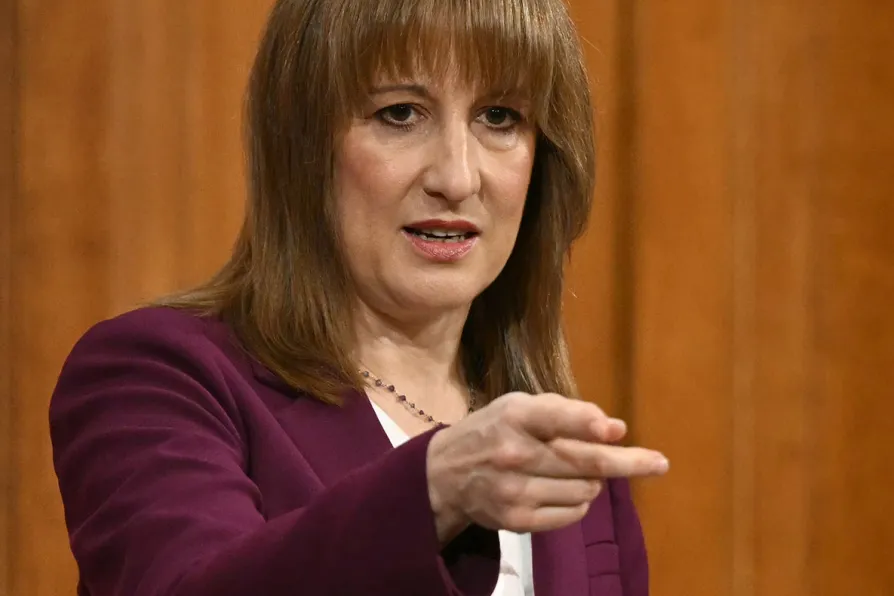John Wojcik pays tribute to a black US activist who spent six decades at the forefront of struggles for voting rights, economic justice and peace – reshaping US politics and inspiring movements worldwide
The Labour leadership’s narrow definition of ‘working people’ leads to distorted and unjust Budget calculations, where the unearned income of the super-wealthy doesn’t factor in at all, argues JON TRICKETT MP

 Chancellor Rachel Reeves delivers a speech in the media briefing room of 9 Downing Street in central London, ahead of the Budget later this month, November 4, 2025
Chancellor Rachel Reeves delivers a speech in the media briefing room of 9 Downing Street in central London, ahead of the Budget later this month, November 4, 2025
AFTER 16 months of government it is clear that one of the key precepts underlying Keir Starmer’s premiership is mistaken for political, fiscal and economic reasons. He has based his whole strategy on a narrow definition of working people rather than addressing the needs of the whole working class. It becomes clearer as we examine the government’s economic policies.
As we approach Budget Day there is always much speculation as to its likely contents. Readers of the Morning Star will be asking themselves whether the government intends to adjust the way in which Britain historically has taxed income from work much more heavily as opposed to income from wealth. Although there are many distinctions in people’s economic status, socialists have always regarded this cleavage as the most important in defining the character of our capitalist economy. Judged by this criterion, the Labour leadership has got it wrong.
When Establishment politicians want to keep their objectives hidden, it is well known that they use phrases or words which are designed to mislead. Is this the case with the Prime Minister’s repeated use of the phrase “working people” rather than “working class”?
In a speech in 2023, the Disability News Service noted that Starmer used the phrase “working people” 23 times. Meanwhile, the Labour manifesto contained the phrase 21 times.
The Chancellor has defined the government’s meaning of “working people” as those who are employed and are “strivers who graft” and has pledged not to increase income tax, employee National Insurance contributions, or VAT for this group. She has also stated that the government should be “on the side of working people, acting in their interest.”
Recent leaks from the Treasury suggest that they have adopted a definition of “working people” as those who earn less than £45,000 per annum. Figures are hard to come by, but it is estimated that there are just over 30 million who only pay basic rate tax. There are others who work but who earn so little that they pay no tax at all. This latter group does not therefore figure in Reeves’s Budget calculations.
So we can see that the government’s pledge to protect working people amounts to an offer to protect perhaps 30 million out of a population now amounting to almost 70 million. This is the theoretical background to the government’s recent attempted attacks on groups who live outside the working people definition. It is not difficult to see that the pensioners’ winter fuel, or people living on disability, or with mental health problems all don’t fit into the protected characteristic.
But there is something odd about both these attacks and the definition itself. Firstly, the government target excludes perhaps half of all voters which polls in turn are already showing is impacting on Labour’s likely electoral position. Secondly it focuses often on the poorest. And thirdly it is oriented to incomes from work rather than incomes from wealth.
The idea that the government should drive a wedge between those who work for less than £45,000 per year and the rest of the population is fundamentally mistaken. So let’s pose a different proposition: that socialists would adopt the idea that the key cleavage in Britain is not between “working people” and other groups. It is rather that the key is to understand the cleavage which drives capitalism is between those who derive their income from vast and growing wealth on the one hand and those who have little or no such income or wealth on the other.
As soon as we make this proposition, another analysis emerges, and a very different politics. Capitalism in our country has created obscene levels of wealth in the hands of a tiny elite group. It is an ethical failure and it’s an economic one too.
The wealthiest 10 per cent of households now own over half of all private wealth. And the gap between the rest is accelerating away. A tiny group of people have accumulated billions as a consequence of asset price inflation which they did little to create. But wages and salaries have been mainly static since the 2008 crash.
Meanwhile there are millions who suffer. In truth the extraordinary wealth of the few has happened at the expense of the many. Wealth doesn’t trickle down. It is sucked up like a vacuum cleaner from the declining incomes and wealth of the rest of society as well as the cutbacks to public services. All of this destroys social cohesion, weakens the services on which we depend and breeds an insurgent mood which the right is trying to commandeer by blaming minority groups.
The task facing socialists is to take head on the fallacious argument that our problems have been caused in this way. None of the chronic inequality, the poverty, foodbanks, deteriorating services or the stagnating incomes is natural. It has arisen from political choices made by Britain’s governing class.
Jon Trickett is Labour MP for Normanton and Hemsworth.









